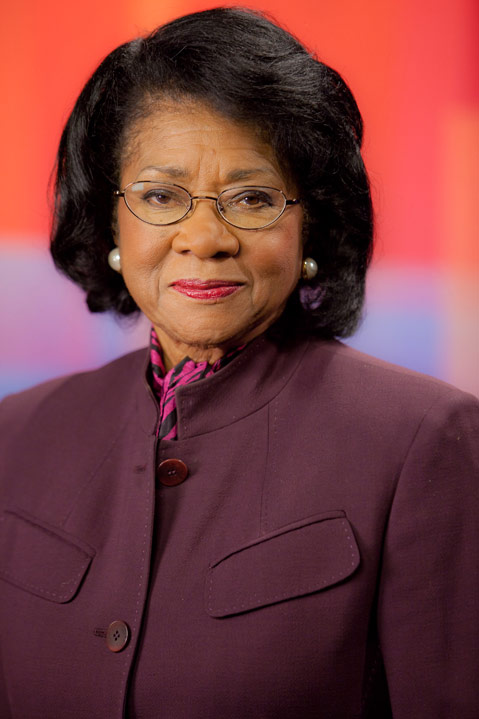California Pioneer
Renowned Reporter Recounts a Life Spent Knocking Down Barriers of Race and Gender
The first big story Belva Davis covered was the 1964 Republican National Convention, a historic and raucous political event that scared the hell out of her.
Today, the 78-year-old Davis is in her sixth decade of working as a California broadcast journalist, an extraordinary career that has earned her national acclaim and countless awards since she became the first African-American woman in the West ever hired as a TV news reporter.
But on the night of Tuesday, July 14, 1964, two days before the GOP confab would nominate right-wing Senator Barry Goldwater for president, she was a young and callow rookie from a tiny black radio station in Oakland, sitting next to her boss in the nosebleed seats of San Francisco’s sweltering Cow Palace, as anger, chaos, and racism erupted all around her.

“While the Goldwater organization tried to keep its delegates in check on the floor,” Davis writes in a just-published memoir, “snarling Goldwater fans in the galleries around us were off the leash.”
“‘Hey, look at those two up there!’” she remembers hearing someone amid a sea of “faces turned scarlet and sweaty by heat and hostility” yell toward her and her news director. “The accuser pointed us out, and several spectators swarmed beneath us. ‘Hey niggers!’ they yelled. What the hell are you niggers doing in here?’” Davis writes that she and her partner quickly packed up their equipment as loud cries of “Get out of here, boy!” “You, too, nigger bitch,” and “I’m gonna kill your ass” followed them.
“I stared straight ahead, putting one foot in front of the other like a soldier who would not be deterred from a mission,” she recounts. “My goal was to appear deceptively serene, mastering the mask of dispassion I had perfected since childhood to steel myself against any insults the outside world hurled my way.”
The self-possessed courage, determination, and stoicism that Davis dug deep for in those awful moments would afterward guide and propel her through a wearying series of professional, political, and personal obstacles in a singular career, which she chronicles in Never in My Wildest Dreams: A Black Woman’s Life in Journalism.
As ambitious, energetic, and persevering as Davis was, it’s hard to imagine someone with more strikes against her. Born to a 15-year-old in rural Louisiana during the Depression, abused as a child, then raised by relatives in Oakland, she clawed her way into a white-male–dominated industry and climbed her way up with the most unlikely of profiles: Black, female, short of stature, equipped with a tiny voice, and lacking a college degree, she herself for years was a single mother.
Working as a deejay at a San Francisco station that specialized in white pop music early on, Davis was chastised when she snuck a Miles Davis tune on the air late one night; not long after, though, the station manager asked that she try to sound “more black” on the air so that the channel would get community props for hiring her. When she applied for her first TV job at a San Francisco station, hosting an early morning show, she was told, “I’m sorry, but we’re just not hiring any Negresses.”
“I really lived the American story,” Davis said in an interview.
Her memoir, written with the journalist Vicki Haddock, is both an intensely personal narrative and a modern political history of the Bay Area, California, and the nation. With accounts ranging from ducking bullets and tear gas during street riots in Berkeley to being spat upon by Ku Klux Klan members at a demonstration she covered in Georgia, her book is packed with dramatic tales of some of the biggest news stories of the past half-century, from the AIDS epidemic, the civil-rights movement and San Francisco’s City Hall assassinations to one-on-one interviews with, among others, Muhammad Ali, Fidel Castro, and the Reverend Jim Jones, who would later lead the mass murder/suicide of more than 900 people in Guyana.
As a woman and an African American, Davis always felt the pressures of blazing a trail for others. So she constantly worked to master her emotions in order to present the public face of the consummate professional newswoman — confident, imperturbable, and scrupulously objective. Inside, however, she was afflicted by hurts and humiliations, fears, and anxieties that she could never let show.
“I sort of locked it up,” she said, “until I released it in this book.”



